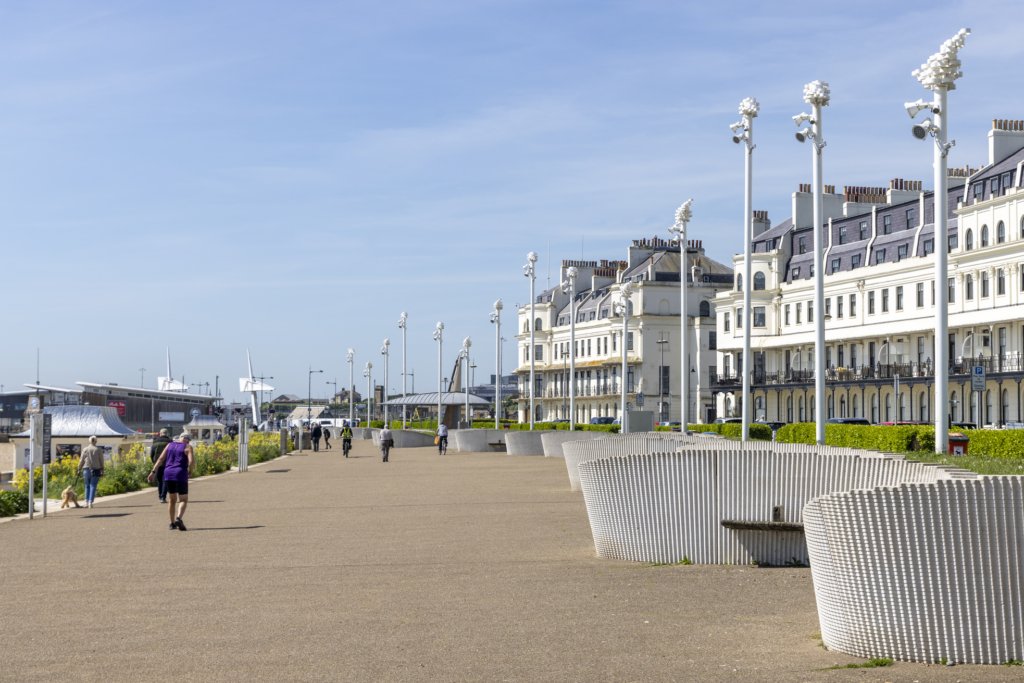Why the new government should focus on doubly disadvantaged neighbourhoods
Ahead of the upcoming general election, Local Trust’s head of external affairs, Madeleine Jennings, makes the case for all political parties to focus their attention on doubly disadvantaged neighbourhoods.
We all live in neighbourhoods. The neighbourhoods we are born in, grow up in and eventually settle down in all affect our quality of life as well as determining our life chances.
As the anticipation builds ahead of July’s general election, Local Trust is asking politicians from all parties to focus their attention on neighbourhoods. More specifically on England’s doubly disadvantaged neighbourhoods. These areas are among the poorest in the country but also the most lacking in social infrastructure. In these doubly disadvantaged neighbourhoods, people’s lives are shorter, harder and lonelier than the national average as well as compared to areas where poverty rates are equally high but where social infrastructure is strong.
Change is possible and necessary
Everything Local Trust has learnt from its work supporting Big Local areas, and from its policy and research work, tells us that the next government can and should turn things around for these areas. But to do this will require new ways of working and political determination.
Government at every level, from Whitehall to the Town Hall, is trying to solve the problems that our evidence shows are most prevalent in doubly disadvantaged neighbourhoods, from NHS waiting lists to the national skills shortage, from transport failure to the crisis in children’s social care. But nowhere in government is a concerted, coordinated effort being made to tackle these issues where interventions would make the most difference – at the neighbourhood level. In fact, the attention paid to regional devolution continues to distract attention from neighbourhoods.
Practical steps towards a new neighbourhoods policy
As we run up to the election, Local Trust is publishing a manifesto making the case for a neighbourhood focus. It argues for two main things that the new government should do.
- It should create a Neighbourhoods Unit, with cabinet responsibility, to drive the necessary work to be done across departments and different layers of government. The unit would build on the Community Wealth Fund (CWF) and ensure that policy and programme development across government takes into account the needs and aspirations of doubly disadvantaged neighbourhoods, ensuring they receive their fair share of funding and that the local public sector is encouraged and supported to help change their prospects.
- It should also review, and expand, proposals for a CWF supported by dormant assets, clarifying that it will target doubly disadvantaged neighbourhoods. This would provide long-term community-led investment and create the community infrastructure which is a necessary foundation for their regeneration.
From neighbourhoods to national renewal
Local’s Trust’s experience of delivering the Big Local programme in 150 disadvantaged neighbourhoods since 2011, as well as the evidence from decades of regeneration policy, makes plain that community leadership is one vital ingredient for successful regeneration.
There’s an urgent need to secure sustainable, community-led regeneration in our doubly disadvantaged neighbourhoods as part of a wider drive for national renewal. We believe our manifesto starts to map out the ground work for how it might be achieved. Please support us in advocating for it.
You can read our manifesto A new neighbourhoods policy now to find out more, and discover why the new government should focus on neighbourhoods in our policy spotlight.
Madeleine Jennings is head of external affairs at Local Trust

